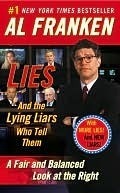
America (The Book): A Citizen's Guide to Democracy Inaction
Book Description
Step into a world where democracy meets absurdity, and the truth is often stranger than fiction. "America (The Book): A Citizen's Guide to Democracy Inaction" unravels the hilarious chaos of American politics, blending sharp wit with biting satire. Through vivid illustrations and razor-sharp commentary, it challenges the very fabric of civic engagement, shedding light on the absurdities that define the nation’s political landscape. A rollercoaster of laughter and enlightenment awaits as it navigates the tangled web of power and responsibility. Are you ready to confront the folly of a system that both inspires and repels?
Quick Book Summary
"America (The Book): A Citizen's Guide to Democracy Inaction" by Jon Stewart and the writers of The Daily Show is a piercingly satirical examination of American democracy. The book uses humor, mock-textbook visuals, and irreverent wit to deconstruct the nation’s political machinery. It explores everything from the founding fathers and the Constitution, to the workings of the three branches of government, exposing contradictions and absurdities along the way. By mimicking a high school civics textbook, Stewart presents a playful yet biting commentary on how American democracy operates—often in contradiction to its lofty ideals. The book pokes fun at politicians, the media, civic rituals, and citizens themselves, ultimately suggesting that democracy is both a remarkable achievement and a spectacle marred by human folly.
Summary of Key Ideas
Table of Contents
Origins and Ideals of American Democracy
Jon Stewart’s "America (The Book)" launches with a satirical take on the founding of the United States, lampooning the motivations and eccentricities of the founding fathers. The text deconstructs the revered myths of American origin, arguing that the nation’s ideals were often more aspirational than actual. The book cleverly intertwines real historical facts with outlandish jokes and fabricated anecdotes, exposing the contradictions between America’s image and its messy, often self-serving beginnings. The Constitution, for instance, is parodied as both a document of high principle and a source of endless debate and loopholes.
The Structure and Flaws of Government Institutions
The exploration moves into the mechanics of government, using tongue-in-cheek diagrams, mock quizzes, and fake classroom exercises. Each branch of the American government—the Executive, Legislative, and Judicial—is dissected with irreverent humor. Politicians are portrayed as self-interested, institutions as lumbering, and the checks and balances system as one prone to standoff and gridlock. Stewart’s parody extends to the bureaucracy and the often-illogical traditions that have become enshrined in American governance, revealing how silly actual processes can appear when stripped of their gravitas.
The Role of Media in Shaping Politics
"America (The Book)" turns its focus to the mass media, highlighting its pivotal and flawed role in political life. The authors lampoon the 24-hour news cycle, punditry, and sensationalist journalism, asserting that media serves as both a filter and a funhouse mirror for democracy. Through mocked-up news stories and fake news anchors, the book shows how information is packaged, spun, and often trivialized. The symbiotic, sometimes toxic, relationship between politicians and journalists is presented as a circus, with each benefiting from promoting drama over substance.
Citizenship and Civic Apathy
The book questions the effectiveness of citizenship in a democracy that frequently encourages apathy and disengagement. It satirizes civic education, voting rituals, and the disconnect between American citizens and their government. Through comedic sidebars and mock-exams, the book points out how little many people understand about the system they live under. The authors grapple with the challenges of participation in a complex and sometimes demoralizing political landscape, suggesting the system’s intricate design can actually distance citizens from genuine engagement.
Satire as Social Critique
Underlying the humor, Stewart’s work serves as a vehicle for sharp social critique: satire is wielded as a tool to expose flaws, ignite conversation, and encourage reflection. By laughing at the spectacle of democracy, readers are invited to interrogate their own roles within it. Stewart’s comedic lens does more than amuse; it provokes thought about how traditions, authority, and public participation combine to define American political life, challenging readers to both appreciate and question the workings of their democracy.
Download This Summary
Get a free PDF of this summary instantly — no email required.





